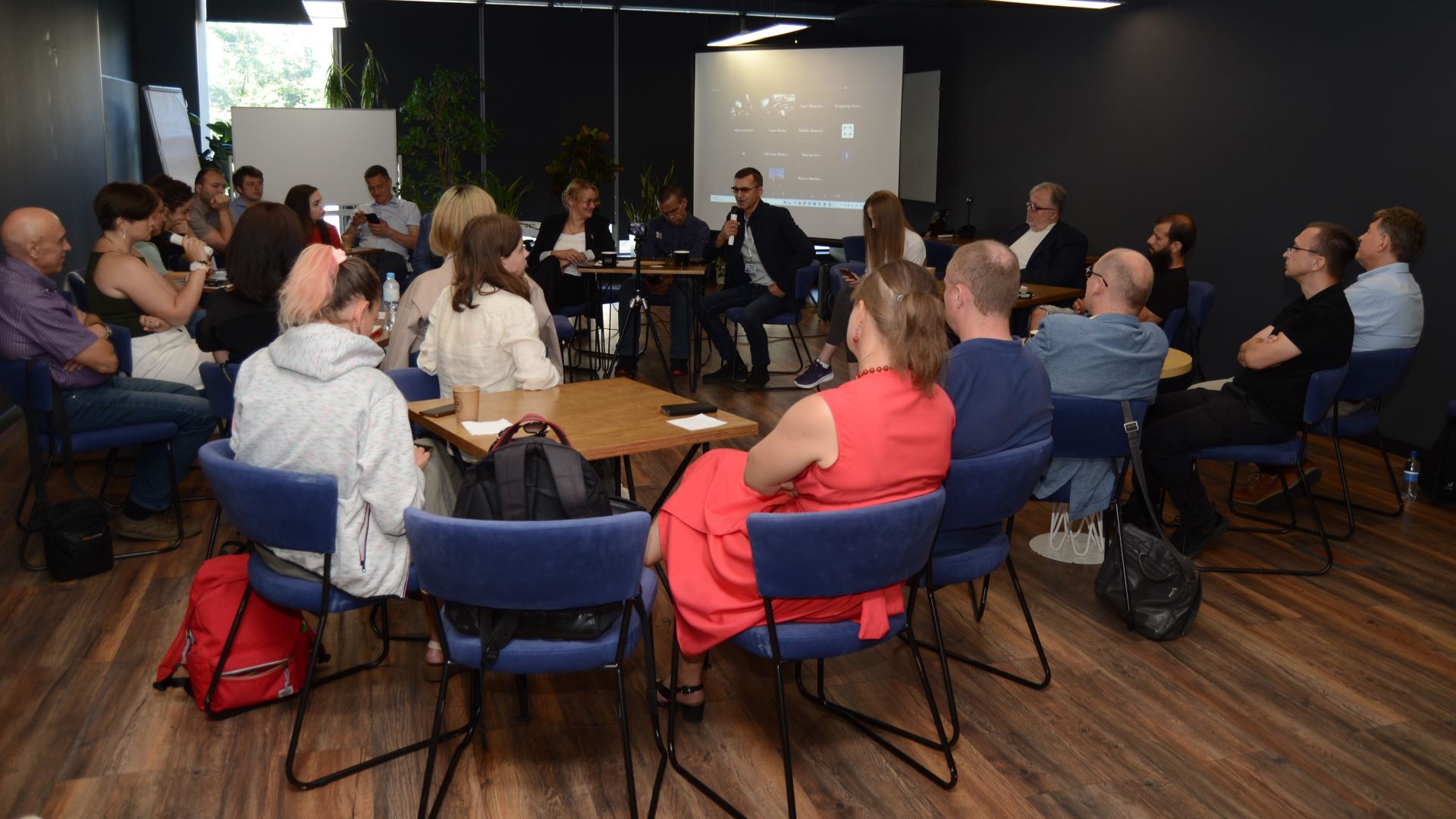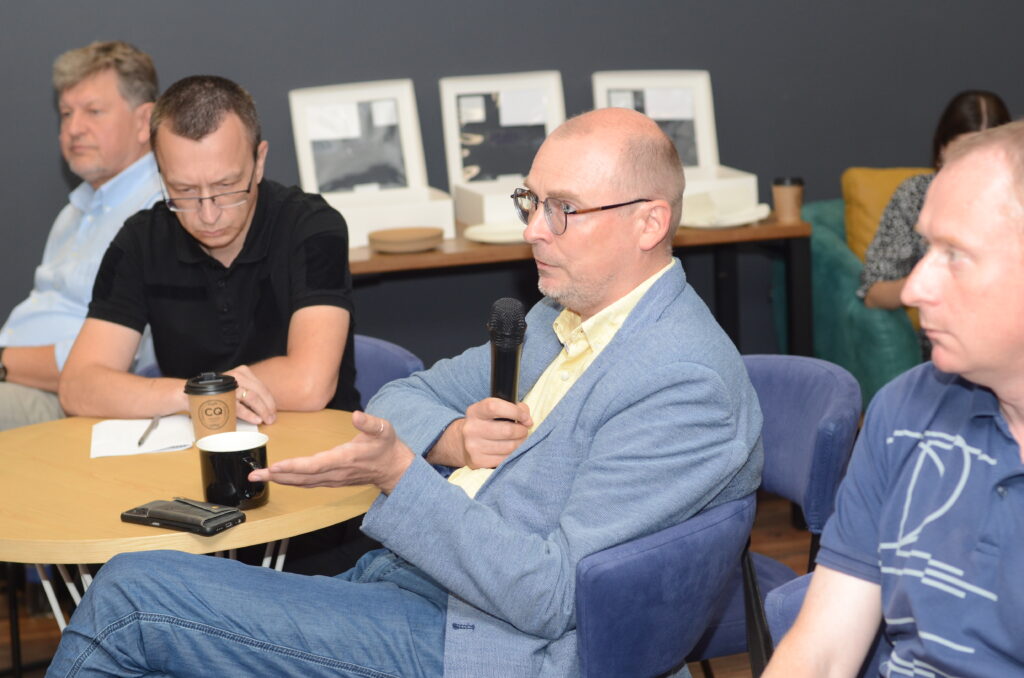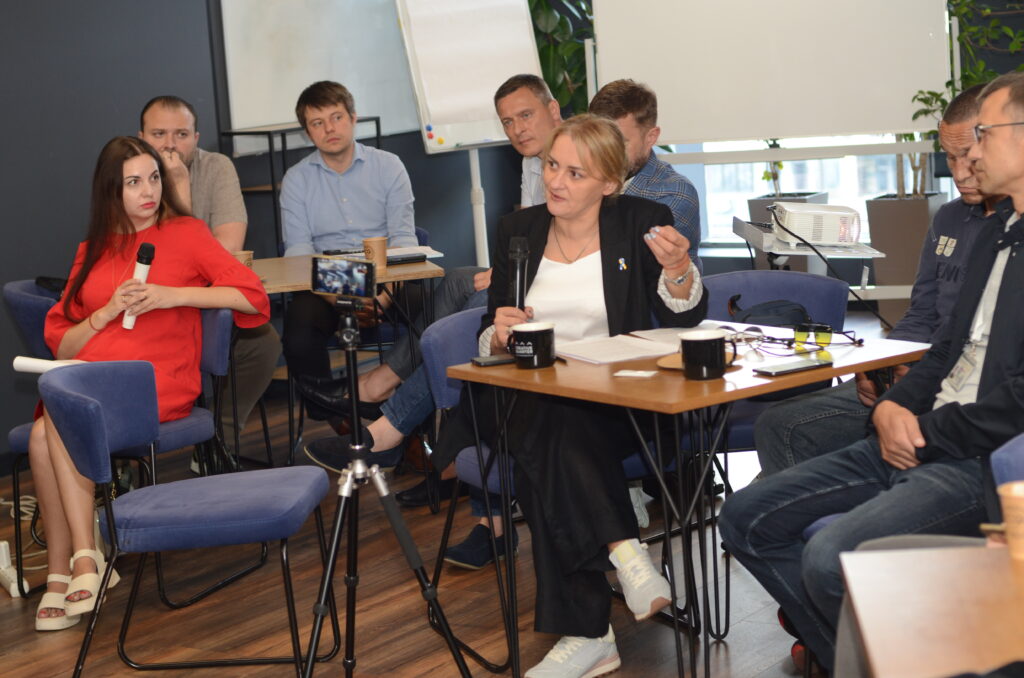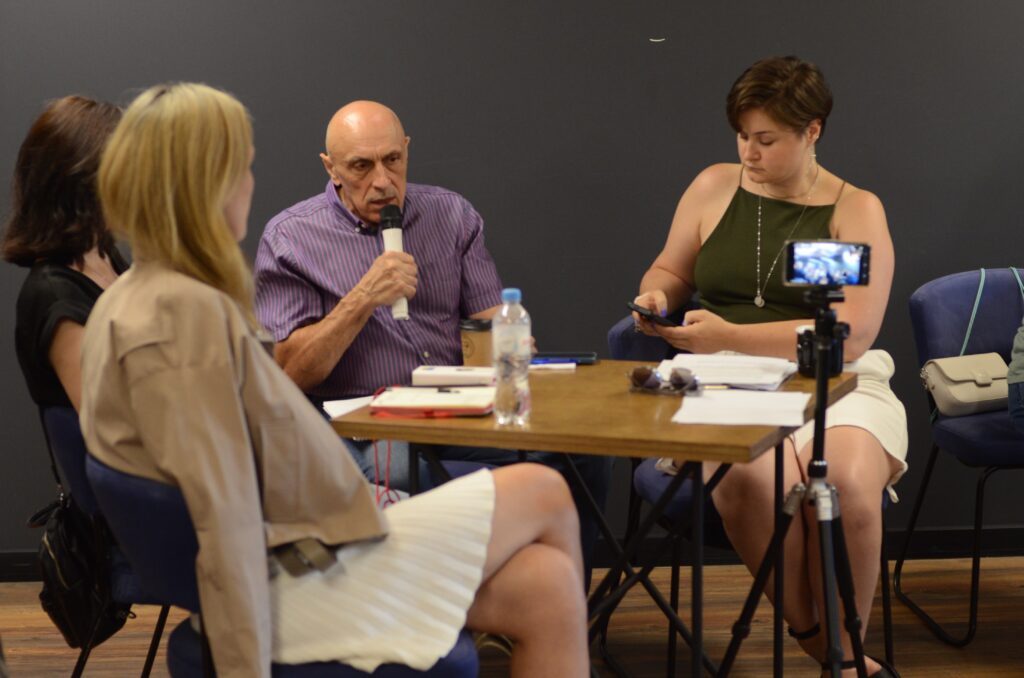“Ukrainian Prisoners Forcibly Transferred to the Russian Federation: Repatriation Challenges”. The key insights from the Human Rights Club

On July 31, the Center for Civil Liberties held a discussion as part of its monthly Human Rights Club on the topic: “Ukrainian Prisoners Forcibly Transferred to the Russian Federation: Repatriation Challenges”.
The issue of Ukrainian prisoners forcibly taken to Russia isn’t widely covered, partly due to stereotypes that complicate their reintegration. However, it’s crucial to remember that everyone, regardless of whether they committed a crime or not, has basic rights that need to be protected. This principle is fundamental to a civilized society.
That is why issues such as the algorithm for Ukrainian prisoners crossing borders through third countries, the difficulties in verifying the legal fact of their release, and other important topics were raised during the discussion. We share the key points.
“During the full-scale invasion, approximately 3,100 prisoners were held in institutions which were temporarily occupied. After the liberation of four institutions in the Kherson and Mykolaiv regions, we discovered that over 2,000 prisoners were missing. According to information from open sources, these individuals were relocated to other facilities and distributed across Russian institutions.
However, Ukraine has legislatively regulated the process of returning prisoners and established further procedures.
There exists a protocol established by a joint order from several agencies that dictates that when a person from occupied territories enters Ukraine and comes under the jurisdiction of law enforcement agencies (such as border or migration services or the police), these agencies verify their status against the list of individuals who were serving sentences in Ukraine and whose terms have not yet expired. Such individuals are placed in the nearest institution, typically in a pre-trial detention center. Subsequently, a court determines the periods of their imprisonment, after which they are assigned to facilities designated for the continuation of their sentences.

We update the data monthly regarding individuals who remain in convicted status. Inter-agency cooperation ensures that individuals who served sentences under Ukrainian law do not re-enter the system,” said Andriy Halai, the Deputy Head of the Department for the Execution of Criminal Penalties at the Ministry of Justice.
“From the first day of the full-scale invasion, we began documenting the events occurring in the occupied territories. Specifically, when our prisoners were transported to the Russian Federation, we immediately learned of it and began investigating their new locations. With the help of donors, our organization has managed to return over 2,060 prisoners and gather more than 300 testimonies from individuals who were either in the occupied territories or in the Russian Federation.
We have two pathways for the return of our prisoners: through the humanitarian corridor from Kolotilovka (Russia) to Pokrovka (Ukraine) and through Georgia.

In the first scenario, the following groups of individuals pass through this corridor:
1. Persons Remaining in the Occupied Territories. When their sentences end, they are released and transported through Russia, via Rostov and Belgorod, to the humanitarian corridor.
2. Prisoners Relocated to the Russian Federation. This includes prisoners who were moved from Krasnodar Krai. These prisoners can travel through Kolotilovka to Pokrovka. Initially, they were placed in Temporary Detention Centers for Foreign Citizens. As they were transferred from Krasnodar Krai to Kerch in Crimea, their sentences began to be adjusted according to Russian legislation, and some were even released earlier. Subsequently, these prisoners contact us, and we assist them in navigating the humanitarian corridor back home.
3. Persons with Tuberculosis from Rostov Oblast (Colony No. 20). Prisoners with open tuberculosis were simply released. They were given only a release certificate, and their Ukrainian passports are often destroyed or lost.
There is also a second route for returning through Georgia. However, there are problems with documentation. Documents are critically important.
In September 2023, Putin issued a decree allowing the issuance of “certificates” or “personal identification documents.” Without this document, individuals cannot pass either at the Kolotilovka checkpoint or in Georgia,” emphasized Hanna Skrypka, a lawyer from the NGO “Protection of Ukrainian Prisoners”.
During the discussion, one of the event moderators, Anna Trushova, asked Hanna Skrypka, “What do the testimonies of those who have returned from Russian prisons reveal about the conditions of serving sentences there?”
Ms. Skrypka responded as follows:
“In Russia, the prison system resembles the Gulag. Prisoners suffer from torture, including severe methods such as the removal and burning of tattoos. Those who refuse to work or ask too many questions often become victims of such abuse. These facts are corroborated by the testimonies of other prisoners”.
“The situation concerning Ukrainian prisoners who were illegally detained in migrant detention centers in Russia is critical. Many of these individuals suffered from illnesses such as HIV, tuberculosis, and other conditions requiring treatment. In Russia, they did not receive adequate medical care and were detained without Ukrainian passports. Thus, their deportation to Ukraine was impossible until 2023.
We have reached out to international institutions and UN bodies to request urgent measures to ensure treatment for these individuals. We also appealed to the Ukrainian authorities to issue return certificates for them.
Unfortunately, the experimental project for issuing “white passports” (short for “return certificates to Ukraine”) included discriminatory provisions that prohibited the issuance of documents to those who had been in prison.
Currently, the situation has improved. Russia has begun implementing certain regulations regarding the return and deportation of Ukrainian prisoners to Georgia. However, problems still arise at the Georgian border. Georgia does not admit former prisoners due to the lack of identity documents, forcing them to wait for a response from the Ukrainian embassy in Georgia and resulting in their detention in the buffer zone for extended periods,” noted Vasyl Melnychuk, legal advisor at EPLN.

“I would also like to address the issue of status: who these 3,000 individuals are under Ukrainian law.
I can state with absolute certainty that they fall under the category of victims of enforced disappearances. Our task is to protect these individuals, but unfortunately, our government often only tracks the remaining time for serving their sentences.
These individuals are in deteriorating conditions: breaches of privacy, severed connections with their families, and so forth. However, the state is not taking the necessary measures to protect them,” shared Oleksandr Pavlichenko, Executive Director of the Ukrainian Helsinki Human Rights Union (UGSPL).
“We receive numerous inquiries and address them at the Ministry of Justice. As a government agency, we are obligated to act according to the law, adhering to the principles of the rule of law and human rights. Our actions must be legally compliant and uphold established norms, even if they may not always seem fair from a personal standpoint.
Regarding evacuation: I agree that the situation in 2014 was inadequate. However, in 2022, 12% of prisoners were evacuated and relocated to other facilities, which represents an unprecedented scale of evacuation. This was, in fact, the largest evacuation in Ukrainian history.
Additionally, we have developed two documents that update the procedures for evacuation and responses in various situations for institutional heads. These documents are currently under review by senior specialists at the Ministry of Justice,” emphasized Andriy Halai, the Deputy Head of the Department for the Execution of Criminal Penalties at the Ministry of Justice.
“I’d like to remind the Ukrainian authorities to discuss with the Baltic countries about the possible transit of Ukrainian citizens released from Russian prisons. Ukraine needs to work with its partners to arrange their return home. Since the situation in Kolotilovka and the political situation in Georgia can change, it’s important to have a clear plan for their safe and effective repatriation,” said Olga Romanova, Director of “Rus’ Sidyashchaya (Russia Behind Bars).”
Yuriy Kovbasa, representative of the Ombudsman for Human Rights in the security and defense sector, agreed with Olga Romanova:
“The issue needs to be addressed within Ukraine, particularly by the Ministry of Justice and the Ministry of Foreign Affairs, to ensure proper management of the process during the reception phase. This will help make the procedure more efficient and faster.”
Author: Khrystyna Zhevlakova, Intern at the Center for Civil Liberties.
Center for Civil Liberties operates with the support of the European Union.

